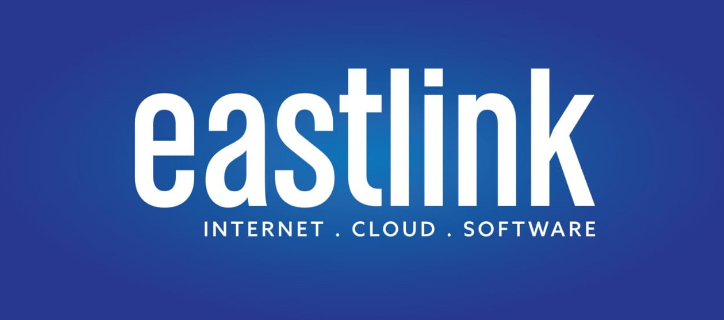While hosting a website, it is important to be able to handle your service and content. Technology has made access to information much easier. More people can now leverage detailed information and features through simpler processes, making website management easier for the user. In Web Hosting, This is made possible through the use of hosting control panels.
A glance online will reveal that there are hundreds of these control panels available. Some control panels are free, while others work on a subscription model. Among the numerous options available, two control panels have a significant chunk of the market share — cPanel and Plesk. They are, by far, the most popular hosting control panels in the market.
This article looks at each control panel, its pros, its cons, and which one is the best fit for you.
What is a hosting control panel?
A Web Hosting control panel is software through which you can control your hosting services and website. You can check what plan you’re currently on, add resources, upgrade your existing plan, deploy SSL (Secure Sockets Layer) certificates, migrate websites, and do so much more. Of course, the feature list varies from one control panel to the other.
1. cPanel
cPanel is the most popular hosting control panel in the world. For a lot of people, cPanel is simply the default choice for control panels. There are a few important reasons for this.
Community Support: For a long time, cPanel was the only control panel available, and as a result, it amassed many users who posted questions online. The cPanel forum grew, and so did the various guides available for hosting related problems. Today, if you have questions about cPanel, chances are, the question has already been asked, and the answer has already been given. You just need to look at the right forums.
Simplicity: Another advantage with cPanel is that it’s designed for newbies who are just figuring things out. All the important settings and tabs are prominently displayed. There’s an excellent help section. As you learn more about hosting, you’ll find more and more settings within the software that will help you tweak your website to the exact specifications you want.
Linux Compatibility: cPanel is designed for Linux-based hosting plans only, and this has been the case for a long time. Given that Linux has also been the default OS for most website hosting plans, the software has been tweaked to work perfectly with Linux.
2. Plesk
Plesk is quite similar to cPanel in the way that it works. The main difference is that cPanel is available only for Linux, whereas Plesk works with Linux and Windows servers.
Plesk, for a long time, was almost unusable because of the sheer unintuitiveness of the software. However, over the years, things have changed radically, and today, it’s almost always the default choice for Windows hosting plans and quite a few Linux users use it as well.
cPanel vs Plesk: which one is better?
Unfortunately, there’s no universally correct answer. The best control panel for you is the one that does what you want better. So, with this in mind, here are a few important differences between Plesk and cPanel:
UI (User Interface)
Plesk – Plesk used to be objectively bad at UI. One glance at old hosting forums will tell you that. However, those days are gone, and today, Plesk is a breeze to use.
It comes with a simple sidebar that doubles up as the central command system through which you can control pretty much everything from your server to your account. The help section has been thoroughly updated, and it’s easy to find help online as well.
cPanel – UI has been cPanel’s strength for a long time, and that continues. Simply put, it’s the easiest control panel to use if you’ve never used a hosting control panel before. Plesk is great, but cPanel wins out.
Security and compatibility
Plesk – Plesk supports one-click SSL, and given that it’s run on Windows, there are always new security patches, including bug fixes. What’s more, you can execute all security-related tasks from the central dashboard.
Plesk also has a mobile app for Android and iOS, meaning you can monitor your website from anywhere.
On the database front, Plesk supports phpMyAdmin for MySQL. Further, it is equipped with a native Plesk Migrator if you want to migrate your website.cPanel – cPanel allows you to deploy SSL certificates, blacklist particular IP addresses, and even encrypt all your messages. With cPanel, you can create multi-factor authentication for added security.There is no native mobile app, but there are a few third-party applications that you can use. These are known to be generally clunky and mostly full of bugs.
Backups
Plesk – Plesk offers two basic kinds of backups for your website — complete and incremental. A complete backup is when the software captures all your data each time you take a backup. This is more thorough but usually takes up more space and time.
Incremental backups work on a different principle. When you take the first backup, all the data is captured. Subsequently, whenever you take a backup, only the differences from the previous copy of data are recorded, and the original file is amended to reflect those changes.
cPanel – cPanel offers three kinds of backups — uncompressed, compressed, and incremental. Uncompressed backups are stored without compressing any of the data. The advantage is that it is faster and easier when you want to retrieve data. The disadvantage is that it takes up more space.
As the name suggests, compressed backups compress the files not to need a lot of storage. However, when you want to retrieve data, it has to be uncompressed, which takes more time. Incremental backups work exactly as mentioned before.
cPanel vs Plesk — which do I choose?
If you’re using Windows hosting, then the answer is obvious — Plesk. However, if you choose Linux-based hosting, cPanel is a better choice.
Final words
Eastlinkcloud offers a veritable list of web hosting plans with a pre-integrated cPanel control panel. It’s powerful, easy to use, and easy to learn, making it the best hosting control panel for Linux-based hosting plans. It is especially helpful with VPS Hosting plans that offer full root access at affordable prices. cPanel support helps you make the most of your VPS root access.
Eastlink Cloud Pvt. Ltd.
Tripureshwor, Kathmandu, Nepal
Phone:166001-95985
Mail:info@eastlinkcloud.com












